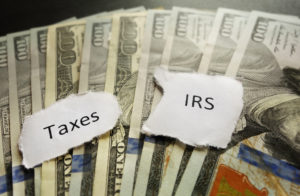A federal judge has denied the latest effort by New Rochelle businessman Philip Colasuonno to block the Internal Revenue Service from collecting tax penalties owed in a 2007 tax fraud case.
On Jan. 27, U.S. Magistrate Judge Judith C. McCarthy denied Colasuonno’s motion to dismiss an IRS lawsuit to collect $2.5 million, ruling that the agency filed the case in time to beat the statute of limitations.

Colasuonno, a former certified public accountant, has been resisting the tax obligation for 16 years.
In 2007 he was accused of conspiracy to commit tax fraud and preparing false tax returns.
Prosecutors described companies owned by Colasuonno and family members as “thoroughly infected with criminality.”
For four years, for instance, Colasuonno failed to remit taxes for income, Social Security and Medicare on the wages of employees of American Armored Car Ltd., of Elmsford. The tax obligations were disguised by paying employees in cash for overtime work and accounting for the payments as outside services.
Colasuonno pleaded guilty. He was sentenced to time served and five years of supervised release and he was ordered to pay $781,467 in restitution.
In 2009, in filed for Chapter 7 bankruptcy protection.
In 2011, Colasuonno was sentenced to prison for four months for violating probation by failing to make a good faith effort to make restitution payments. Also in 2011, while the bankruptcy case was pending, the IRS assessed penalties and filed a $1,747,190 federal tax lien.
Ten years later, on December 20, 2021, U.S. Attorney Damian Williams filed an action on behalf of the IRS to collect taxes and penalties that totaled nearly $2.5 million.
Colasuonno claimed that the lawsuit was not filed in time.
Typically, the IRS has 10 years after a tax is assessed to sue for collection, Judge McCarthy noted.
But Bankruptcy automatically stops ordinary creditors from filing collection efforts for claims that arose before the bankruptcy case began.
Colasuonno argued that the IRS violated that ban by filing a federal tax lien while his bankruptcy case was pending. And when the IRS collection case was filed, it was more than 10 years after the tax lien was filed and therefore was not done in time.
But federal tax liens are created automatically when a taxpayer neglects or refuses to pay taxes after a demand is made, the judge said. They exist regardless of whether the IRS publicly files the lien. And when collection efforts are suspended during an active bankruptcy case, the government may sue for collection 10 years and six months after the bankruptcy case ends.
Colasuonno’s bankruptcy case was discharged in July 2011 and the government had until January 20, 2022 to file the collection case. It beat the deadline by a month.
Colasuonno, now 72, could have challenged the IRS in bankruptcy court, McCarthy said, but he failed to do so and now it is probably too late.
“The instant collection action,” McCarthy said, “was timely filed.”



















